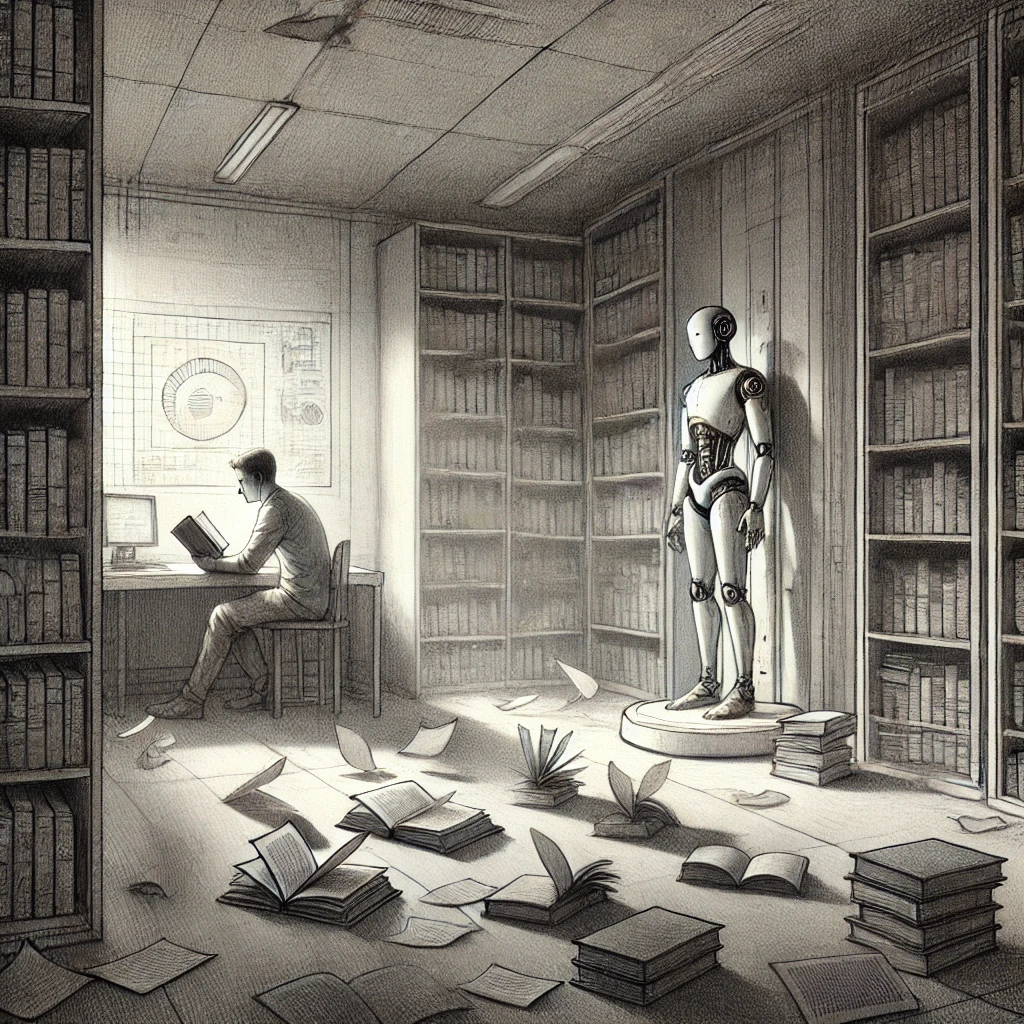
There’s a quiet desperation in the halls of academia today, though it’s rarely spoken aloud. The problem is not just the dwindling student enrollments or the closure of programs. The real crisis, as Christopher Newfield lays bare in Humanities Decline in Darkness, is one of systemic neglect—a failure to fund the humanities adequately in an age when their insights are needed more than ever.
We live in a time when artificial intelligence reshapes the way we live, think, and create. Machines now churn out poems, solve equations (write stories on Unprompted!), and even imitate human conversation with startling accuracy. Yet, amid this technological surge, the disciplines that teach us to interrogate meaning, history, and ethics—the disciplines that preserve our humanity—languish in a state of persistent underfunding.
Humanties research stats
In Australia, a mere 8% of government research funding flows to the Australian Research Council (ARC), the slender lifeline upon which the ambitions of university social science researchers are precariously tethered.
These grants, fierce in their competition—where fewer than one in five may succeed—demand not only brilliance but an exhausting devotion to the labyrinth of applications and reviews, a process that tests the spirit as much as the intellect, leaving many to wonder if the effort to seek recognition has overshadowed the pursuit of truth itself.
Humanities research in the United States, the epicentre of global AI research and development, receives a paltry 0.13% of federal research funding, according to Newfield’s analysis. For every $1,000 spent on research, the humanities receive just over a dollar—a statistic that seems to declare their irrelevance. This neglect is compounded by universities that, despite managing vast research budgets, allocate their discretionary funds primarily to STEM fields. These disparities exist not because the humanities lack merit, but because their value resists quantification in the metrics of economic return.
This chronic underfunding undermines not just scholarship but the infrastructure of thought itself. As Newfield illustrates, scholars struggle to transform dissertations into books, sustain interdisciplinary collaboration, or even secure the basic research assistance that STEM fields take for granted. Humanities researchers operate as solitary amateurs in a system designed for professionalised collaboration, a condition that saps their potential to address society’s most pressing questions.
Artificial Intelligence, Real Consequences
The rise of artificial intelligence should be an era of renewed investment in the humanities, not their marginalisation. AI does not emerge from a vacuum. Its algorithms are shaped by human decisions, its data steeped in human histories and biases. Without the interpretive frameworks provided by the humanities, we risk embedding inequities and prejudices into the systems we create.
As Newfield points out, most humanities research is “basic research,” unmoored from commercial interests but foundational for understanding our world. It is in the humanities that we grapple with the ethical dilemmas of AI, its implications for privacy, and its impact on labour and identity. These are not abstract concerns. They are the questions that determine how—or whether—technology will serve humanity rather than subjugate it.
Funding Justice, Epistemic Justice
What’s needed, Newfield argues, is not just more funding but a fundamental restructuring of how we allocate resources. Universities must recognise that the humanities are not a luxury but a necessity for an equitable and informed society. This requires transparency in budgetary decisions and a commitment to correcting the “One Percent Rule” that caps humanities funding at an arbitrary low.
Moreover, this is not merely a fight for academia but for the public good. The humanities inform the public narratives that guide our collective decisions, from policy-making to cultural representation. They remind us that progress is not just about what we can do, but what we should do.
The age of artificial intelligence demands that we fund the humanities not out of nostalgia but out of foresight. If universities and governments fail to act, they will not just undermine a discipline but diminish our capacity to understand ourselves and our creations.
We cannot afford to leave the humanities in the shadows, especially now. For in their neglect lies a deeper loss—a loss of the questions that make us human, and the wisdom to navigate a world increasingly shaped by machines.
Sources: Cambridge University Press - Humanities Decline in Darkness, (US)National Endowment for the Humanities (NEH), Australian Research Council, (US) Modern Language Association, (US) National Science Board, American Academy of Arts & Sciences .)
